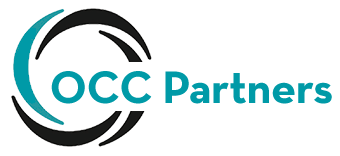Resume Ideas and Guidelines

Step One for A Successful Job Search! Start with Your Resume.
Let’s Get Going. You’re either just entering the job market, or you’re frustrated where you are. So, how do you go about creating a resume that will land you an interview?
Golden Rule, The NEW Golden Rule
Include ‘white space’ within your resume. You don’t need full sentences, as in an email; take out avoidable words within sentences. And, you CAN have more than one page.
Let’s repeat that one. You CAN have more than one page.
Format
First, about resume formats – Chronological or Functional? My recommendation – use Chronological, because almost everyone knows a Functional resume hides lack of work, or lack of recent experience; and because of the volume of resumes companies get, and the speed they see them, yours will never get considered if you use a Functional resume.
Start with easy to read, preferably not a template, pre-formatted resume templates can get caught in resume databases and not download correctly, leaving you with an incomplete resume.
Font
Pick a font that’s used frequently in business, like Calibri, Arial, or Times New Roman. Stay away from anything that’s unique, or too artistic; they are challenging to read, and most people won’t bother reading it….no matter how solid your resume is.
Headings
Use the following headings: SUMMARY OF QUALIFICATIONS, PROFESSIONAL EXPERIENCE, VOLUNTEER AND/OR ACTIVITES AND/OR HOBBIES, EDUCATION, and if you’ve published any blogs, articles, or books, you can add a title, PUBLICATIONS.
Objective Statement
Don’t use it! Why? Because if it’s not exactly what the reader wants you can end moving forward before you begin. So, once more, don’t use an Objective Statement.
Summary of Qualifications
Use this section and use it at the top of your resume, even if you’re fresh in the job market. A Summary of Qualifications tells the reader that they’re going to learn a little about you, what you consider strengths, as well as where your strongest professional experiences are. (Only use for experience if it demonstrates experience relevant to the job posting).
Education
 If you’re a fresh graduate, it’s time to tell people! List the degree in all caps and FIRST, then the college name. With the degree first, the reader sees immediately you have a Bachelor’s degree/Master’s degree. If you took interesting and relevant classes, or classes that show you are a strategic thinker, analytical, or creative, then include those. For two reasons, one is sometimes it can show a more creative personality or more analytical, or even skills in a specific area, like Accounting/Finance, or a Digital Marketing class, which they’d never know, unless you’ve put it on your resume. The second reason is sometimes in an interview, the interviewer sees a class that’s interesting and asks you about it…and this is a good time to ‘break the ice’ and show your interest or knowledge.
If you’re a fresh graduate, it’s time to tell people! List the degree in all caps and FIRST, then the college name. With the degree first, the reader sees immediately you have a Bachelor’s degree/Master’s degree. If you took interesting and relevant classes, or classes that show you are a strategic thinker, analytical, or creative, then include those. For two reasons, one is sometimes it can show a more creative personality or more analytical, or even skills in a specific area, like Accounting/Finance, or a Digital Marketing class, which they’d never know, unless you’ve put it on your resume. The second reason is sometimes in an interview, the interviewer sees a class that’s interesting and asks you about it…and this is a good time to ‘break the ice’ and show your interest or knowledge.
IF, you have one year of professional experience, put your Education at the end and I’ll write about that in a moment.
Professional Experience
 Most recent first! Never, ever, start the with your oldest position because the typical reader spends less than 30 seconds reading your resume, and may never spend the time on yours to see you’ve changed the order.
Most recent first! Never, ever, start the with your oldest position because the typical reader spends less than 30 seconds reading your resume, and may never spend the time on yours to see you’ve changed the order.
Some companies aren’t headquartered near you, or may not be familiar with an industry, include a brief description (1-2 lines) about the company’s line of business.
While you should include a brief description of your responsibilities, the bulk of what you include should be accomplishments, unique projects, or contributions you made.
Key Results of Key Accomplishments are a good way of ‘highlighting’ specific accomplishments. It will make your results stand out, and is good for roles in Sales and Leadership.
Education and Credentials
When you add a degree or degrees, list the degree first, so the reader spots you’re it quickly. Then add the college or university name. This is true whether you’ve been at a prestigious school like Harvard, Amherst or Stanford, or a state school/university.
If you hold a post graduate degree, like an MBA or MS, then list it first.
Do NOT list high school graduation if you’ve completed a degree or are including any post-secondary education.
Volunteering/Activities/Interests
 Think it’s unimportant? Well consider this, most people hire people they like, and the quickest way to connect with an interviewer is if there’s a common interest, or an interesting detail to ask you about. Then, if it comes up, and often it will, you’ve created an opportunity to kick-off your first meeting on a great start. Note, political and religious affiliations are highly discouraged because they could be misinterpreted.
Think it’s unimportant? Well consider this, most people hire people they like, and the quickest way to connect with an interviewer is if there’s a common interest, or an interesting detail to ask you about. Then, if it comes up, and often it will, you’ve created an opportunity to kick-off your first meeting on a great start. Note, political and religious affiliations are highly discouraged because they could be misinterpreted.
And, when you’re done with your first draft, show it to others and get feedback. Make edits and draft separate versions for different roles you apply for.
Now you’re ready to hit the market!









